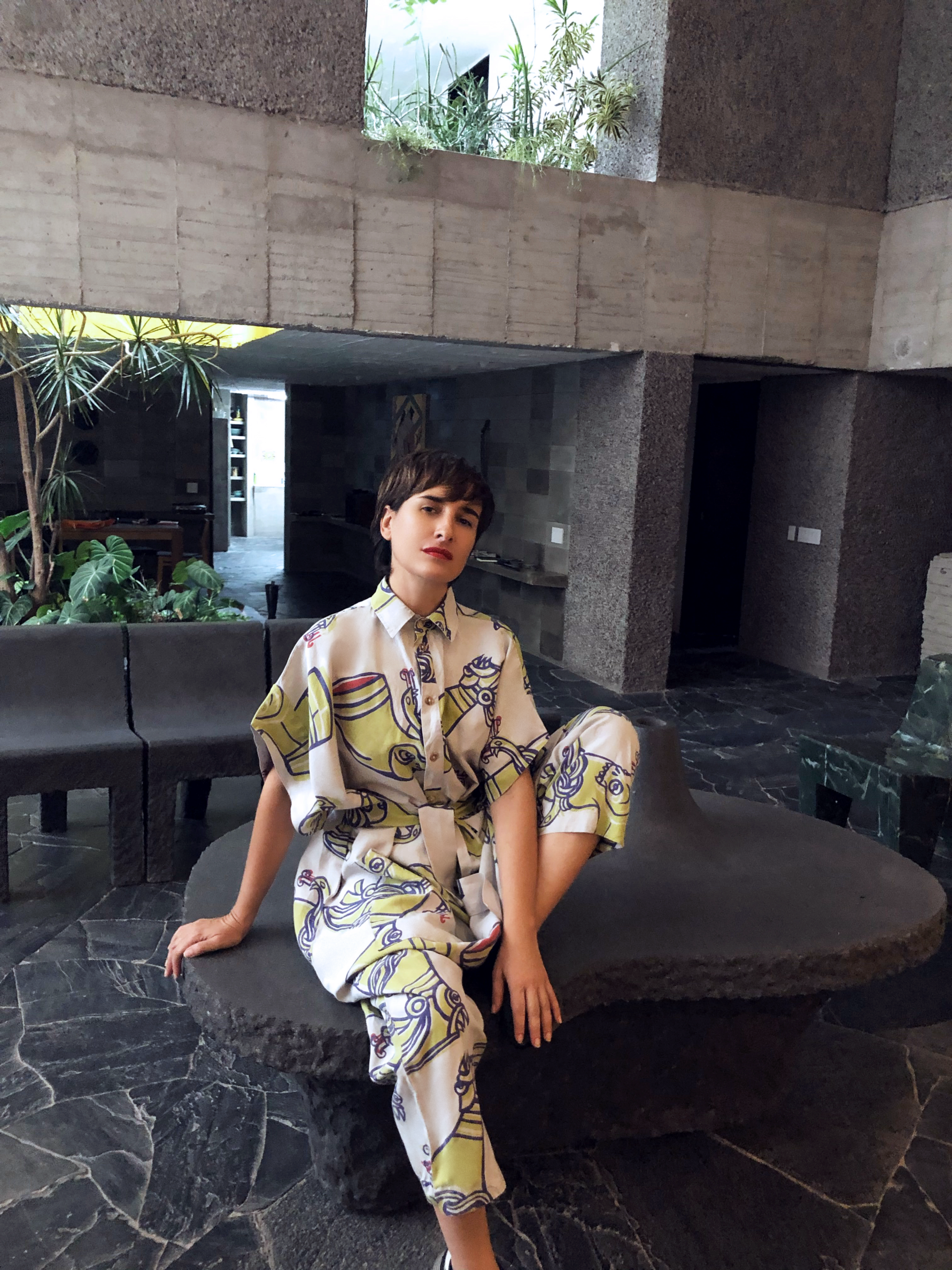
Carla Fernández: Tradition is not Static
October 3, 2023 - February 6, 2024
Anne H. Fitzpatrick Façade
For over three thousand years, those who have sewed and embroidered have transmitted this important expertise from mother to daughter. If the techniques have survived, it is precisely because they are a form of expression. They are a simultaneous manifestation of the subjective and the collective. Despite everything, tradition is not suspended in time. In small towns and artisan communities all across Mexico, styles change and evolve. Creativity is not dormant; on the contrary, it is very much awake and gives way to new and unexpected designs.
- Excerpt from Manifiesto de la Moda en Resistencia by Carla Fernández.
Fashion designer Carla Fernández, based in Mexico City, works creatively with over 187 artisans from sixteen states in Mexico. Her fashion house advocates for textiles as the fabric of civilization. Fernández explores the squares and rectangles of traditional Mexican patterning for the loom and sustains long-standing creative partnerships with artisans, who preserve the rich cultural heritage of Mexico’s indigenous communities. She believes that tradition is always changing and developing and says it “moves the way the earth does — slowly and beautifully.”
Humans express themselves through clothing, for which playfulness and flexibility are key ingredients. In this image, taken during a fashion shoot in the Little Salon at the Museum, a mask that became a bag plays at being a mask again. The iconic Tecuán or Jaguar mask, held by the model, originates in the town of San Francisco Ozomatlán in the southwestern state of Guerrero, and the artisans Santos and Claudio Nájera have used the same centuries-old, hand-painted mask-making technique to create a handbag line with Fernández.
Carla Fernández: Tradition Is Not Static, 2023
Tecuán Bag made in collaboration with Santos and Claudio Nájera, San Francisco Ozomatlán, Guerrero.
Hand painted Cowhide, waxed thread, recycled mirror, metal fittings, 2019
Blouse Manifesto of Fashion as Resistance made in collaboration with painter Isaías Salgado, Mexico City
Hand Painted linen, 2019
Photo © Oluwaseye Olusa/Carla Fernández/Isabella Stewart Gardner Museum, Boston
About Carla

Carla Fernández, Photo Courtesy of the Artist.
"Another fashion system is possible," says Mexican fashion designer Carla Fernández (AIR 2013). She creates haute couture designs throughout Mexico. Fernández's work preserves and celebrates centuries-old textile techniques belonging to Indigenous communities and other popular and urban collectives in Mexico. At an early age she traveled with her father, then the director of museums and exhibits of the National Institute of Anthropology and History. Through this she learned about Mexico's diverse heritage and began collecting garments made by Indigenous and mestizo artisans. After studying art history and fashion design, Fernández turned her attention to traditional techniques of clothing construction in Mexico. Maintaining these techniques and imbuing them with innovation became the root of her practice. As she says: "To be original is to go back to the origin.” The Fashion House that she heads together with her partner Cristina Rangel, collaborates in the design and production processes with artisans across Mexico, by celebrating their living cultures, and by using the house’s global platform to promote social justice and fair trade.
Explore Other Exhibitions
Contemporary art projects at the Isabella Stewart Gardner Museum are supported in part by the Barbara Lee Program Fund.
The Artist-in-Residence program is directed by Pieranna Cavalchini, Tom and Lisa Blumenthal Curator of Contemporary Art. Funding is also provided for site-specific installations of new work on the Anne H. Fitzpatrick Façade on Evans Way.
The Museum receives operating support from the Massachusetts Cultural Council, which is supported by the state of Massachusetts and the National Endowment for the Arts.





